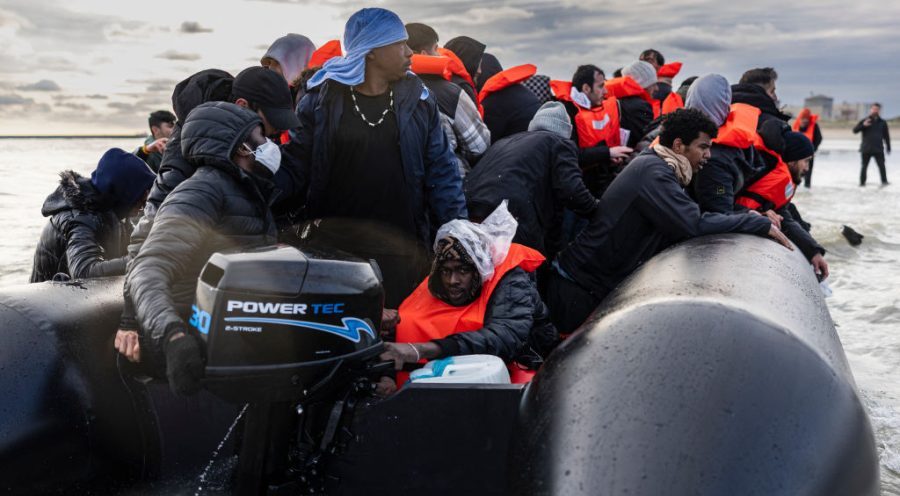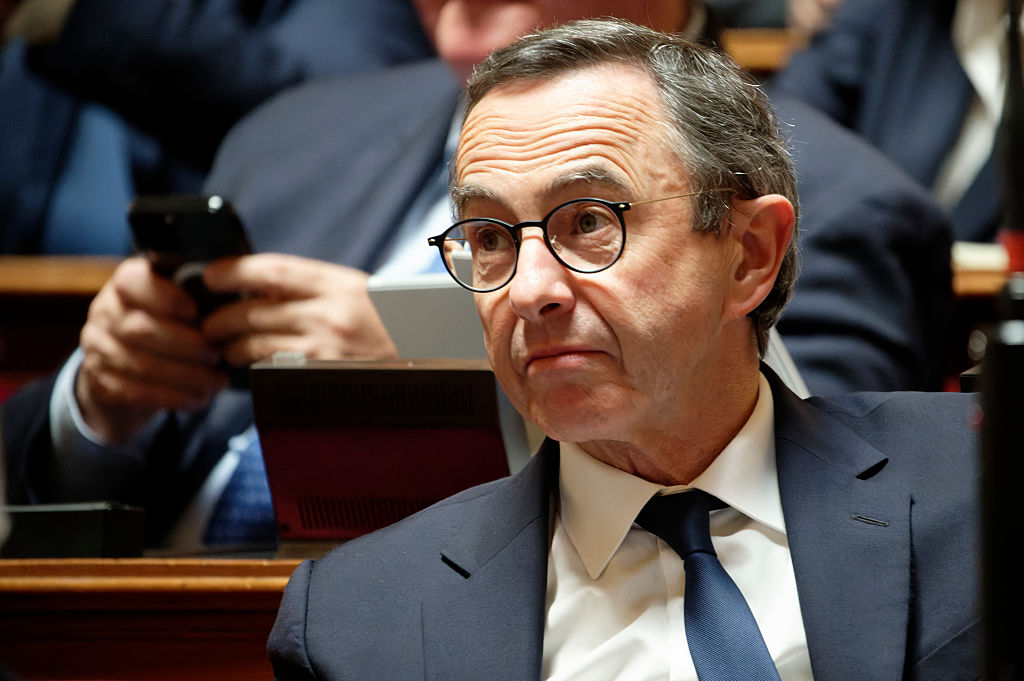Events of the last week have demonstrated the fierce determination of some migrants to reach their European destination of choice. Last Sunday, hundreds of migrants stormed the frontier dividing Morocco from Ceuta, a Spanish enclave on the African coast. The Moroccan police fired bullets into the air to ward off the intruders. ‘They do this deliberately to scare and keep us from trying again but it won’t stop us,’ said one of those migrants who had failed to reach Spain. ‘We’ll keep coming back as many times as needed’.
A few hours earlier and many hundreds of miles north, a group of around sixty migrants encountered three local men hunting ducks in Tardinghen, fifteen miles west of Calais. The hunters phoned the police to warn that the migrants were about to launch a boat towards England.
This is not the first time that Major has let ingenuousness get the better of him
Enraged at their failed attempt, the migrants tracked the hunters to their lodge. ‘We saw them arrive with dead ducks in their hands, screaming,’ said one of the hunters. ‘They had machetes, axes… I was scared to death.’ Showing admirable composure, the hunters refrained from firing on the mob as the migrants attempted unsuccessfully to batter down the door. Before they were chased away by the police, the migrants vandalised the hunters’ vehicle.
In an interview with the BBC last week, the former Conservative prime minister John Major lamented the ‘way society has come to regard immigration as an ill’. Migrants who risked their lives to reach England on a small boat did so ‘because they’re not quite sure where to go’. But many of the migrants know exactly where they want to go: Britain, because it’s so easy to find work, legal or otherwise.
Major also criticised the Tories’ now defunct scheme for sending migrants to be processed in Rwanda. It was unworthy of the Conservative party and the British nation. Furthermore, it was ‘unchristian’.
That word is key to understanding the guiding philosophy of many of Europe’s pro-migrant elite. On the one hand there is the left, motivated all too often by a disdain of western civilisation; and on the other hand, there is the naivety of the humanitarians. Theresa May and Angela Merkel fell into this latter camp; it is perhaps not a coincidence that the fathers of both were men of the cloth.
Pope Francis is another who wants Europe to be more Christian, urging the continent to see the people in the small boats ‘as brothers and sisters…above all as gifts’. The Archbishop of Canterbury, Justin Welby, was a vehement critic of the Rwanda scheme because it sought to ‘outsource our legal and moral responsibilities for refugees and asylum seekers’.
Welby’s predecessor in Lambeth Palace, Rowan Williams, was similarly enthusiastic about ‘welcoming the stranger’, the term he applied to the one million plus people who surged into Europe in 2015. Criticising those who said Britain’s infrastructure couldn’t cope with a large influx of newcomers, Williams added: ‘Not only are these assertions unfounded, but they fail to recognise the positive, life-affirming contributions that generations of refugees have made to British society.’
Williams and Welby are well-intentioned, as no doubt is John Major. But they fail to comprehend that not all the people coming across the Channel are bent on bettering themselves and Britain. An Afghan man called Abdul Ezedi wasn’t. Earlier this year in London he threw a corrosive alkaline substance into the face of his ex-partner and her two children.
Nor was Emad Jamil Al Swealmeen a decent chap. He was killed by his own bomb in 2021 as he attempted to blow up a maternity hospital in Liverpool. Both men were migrants who were allowed to remain in Britain because they claimed to have converted to Christianity (even though Ezedi had been convicted of sexual assault and indecent exposure). Doubt has been cast on the sincerity of both conversions.
This is not the first time that Major has let ingenuousness get the better of him. In a speech to the Conservative Group for Europe in 1993, the then PM sought to reassure his audience that closer to ties to the continent wouldn’t leave the nation diminished.
‘Fifty years from now Britain will still be the country of long shadows on county grounds, warm beer, invincible green suburbs, dog lovers and [football] pools fillers,’ declared Major. He even foresaw – quoting George Orwell – ‘old maids bicycling to Holy Communion through the morning mist’. Britain, he proclaimed, would ‘survive unamendable in all essentials’.
In Major’s defence, when he made that speech in 1993 net migration was -1,000. Then it began to rise: 48,000 in 1997, 250,000 in 2010 and up to 764,000 in 2022. By 2046 – 53 years after Major’s speech – the UK’s population is forecast to be 76.7 million, an increase of 20 million from 1993.
The Britain of 2024 has changed significantly since 1993. It is more sectarian, more sullen and more unstable. What it will look like in another 20 years is anyone’s guess.








Comments